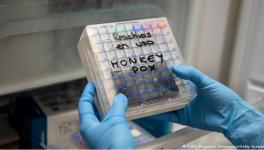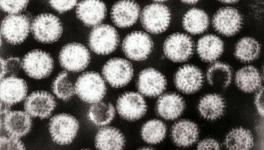OrganEx May Save Donor Organs by 'Telling' Cells Not to Die
A pig heart was transplanted into a human for the first time in 2022, but the patient died. With new technology, researchers hope to make more human organ transplants possible.
STATISTICS WARNING: We're going to hit you with a lot of numbers in a moment, but trust us, the following statistics are one of the best ways to illustrate how many people need organ donations and transplants.
Organ transplantation is an incredibly tricky medical process. There aren't enough human donor organs to help all the people who need them. Waiting lists are very long. Even if you do get a donor organ, one of the hardest things is just getting that organ to you before it dies through cell damage. But a new technology may be able to mimic a living body and extend the time that donor organs survive.
Tens of thousands of people need organ transplants
In the United States, at least 106,000 people are on the waitlist to receive a vital organ transplant. Every nine minutes, another person joins the list, says the US Department of Health and Human Services. And every day, 17 people die waiting.
In South Africa, roughly 5,000 people are waiting for a donor organ, according to that country's national body for the promotion of organ and tissue donation, the Organ Donor Foundation. In 2019, surgeons across the country carried out 356 solid organ transplants, which does not include transplants of tissue, such as bone, skin, corneas or heart valves.
And in Germany, there were roughly 8,700 people on the organ transplant waitlist at the end of 2021, most of them waiting for kidneys. Data from the Federal Health Ministry says that about half that number joined the waitlist in 2021 and 826 patients on it died that year.
Human organ transplants rely on many factors
Finding a perfect match is difficult.
First, blood type and age of the donor and recipient need to line up. Second, the donor and recipient cannot be located too far away from one another, since an organ can only survive without blood flow for a few hours.
But now a team of researchers from Yale University has developed a method that prevents cells from dying and initiates cell recovery. The OrganEx technology could potentially keep organs alive outside the body for longer, so they can travel longer distances for transplantation.
A kidney transplant surgery in Bonn, Germany. Kidneys are among the most sought-after organs for transplants.
OrganEx 'tells' cells not to die
In a press briefing on August 2, 2022, the scientists described the process as "steering cells away from dying." But what does that mean?
If, for example, a person suffers a stroke or dies, blood stops flowing in the body and the cells within our organs stop receiving the oxygen and nutrients they need to survive. That can cause cell damage and if cells get damaged beyond repair, our organs die.
But "cells don't die as quickly as we assumed they do," said Zvonimir Vrselja, who is part of the team behind the OrganEx technology. "With this study, we show that if properly intervened, we can tell [the cells] not to die."
The researchers, whose study is published in the journal Nature, experimented on around 100 pigs to see whether cell structures could be saved, or cell damage could be reversed, if OrganEx was employed one hour after they had simulated death.
The technology has two parts. One is a device that simulates the heart and lung function of a living mammal and pushes a mix of blood and a drug cocktail to the organs. The other is the drug cocktail, or synthetic perfusate. This liquid is made up of 13 chemical compounds and contains drugs that are already in clinical use to target issues such as cell death and coagulation.
One hour post-death, the pigs, who had been anesthetized so they could not feel their hearts being stopped, were hooked up to the OrganEx machine. The machine has sensors that transmit information about metabolic and circulation parameters in real time. Then the system pumped the perfusate to the animal's organs for six hours.
Vrselja said the experiments showed that "we can restore certain cell functions some time after death."
No trials with human organs yet
The researchers emphasized that this was only the first step in a series of studies and that a lot more research will have to go into the technology before it can be applied to save human organs.
For one, the perfusate will have to be adjusted for use in human bodies. And the technology has yet to save an entire organ.
"We couldn't show that any of the organs were fully restored, ready to be transplanted into another pig," said Stephen Latham, another of the study authors, during the press briefing.
But Vrselja said they had "demonstrated we can initiate cell repair on a molecular level."
Latham views the application of OrganEx in the transplantation process as a "promising short-term goal."
Organs could be taken from their donors, hooked up to OrganEx outside the body and then stored long-term or transported over longer distances than is currently possible, said Latham ― once the technology is fully developed.
"This system and the knowledge that was gained have enormous potential for various clinical applications," said Uta Dahmen, head of the department of experimental transplant surgery at Jena University Hospital in Germany, who was not part of the study. "But there's still a long way to go from a promising experimental study to a routine application of a new medical product."
Edited by: Zulfikar Abbany
Get the latest reports & analysis with people's perspective on Protests, movements & deep analytical videos, discussions of the current affairs in your Telegram app. Subscribe to NewsClick's Telegram channel & get Real-Time updates on stories, as they get published on our website.

























